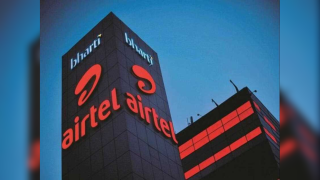Politico, citing three unnamed sources, reports that the Trump administration will sign the executive order ahead of this year’s Mobile World Congress in Barcelona, which is due to take place from 25 February.
The directive, which has been rumoured but delayed, is expected to be signed next week, and will see Chinese telecom equipment banned from US wireless networks.
Huawei has been banned from selling networking equipment into the US since 2012, with US officials citing security concerns. US officials allege that hardware from Chinese vendors could provide a backdoor access for the Chinese government into US networks – something China and Huawei have both denied repeatedly.
Last month, the US Department of Justice unsealed a number of charges against Huawei, with 27 charges levelled overall (though not all were unsealed) against the firm., though these related primarily to allegedly selling equipment into Iran, breaching sanctions imposed on the Middle Eastern country.
2018 ended with the arrest in Canada of Meng Wanzhou, Huawei’s CFO – again over US allegations concerning Iran, which she denies. Security concerns have not featured.
Matthew Whitaker, acting US attorney-general, explained: “When a bank’s customers lie to it about their sanctions-related business, that exposes the bank to the risk of violating the law, especially when they continue to provide those bad actors access to our US financial system. Our sanctions on Iran are the law of the land in this country – and we’re going to enforce the law, with both civil and criminal penalties.”
The accusations are all swirling around as mobile operators, including those in the US, are looking to deploy commercial 5G. Verizon and AT&T both launched small-scale versions of 5G at the end of 2018, but much larger rollouts are expected this year.
Huawei sells 28% of the global telecoms equipment market. Research by Berlin-based intellectual property company IPlytics shows that the top 10 owners of critical 5G patents have 6,632 patents between them. Huawei, ZTE and the China Academy of Telecommunications Technology have 2,081 patents – 31% of the total.
This means that 5G systems without Huawei or ZTE tech in some form are difficult. In a recent analysis piece for Capacity a number of industry veterans warned that excluding the Chinese vendors could make 5G deployments too expensive.
This is expanding globally, too, as the US pressures allies to look at alternative options. Huawei recently published a letter from its president of carrier business group Ryan Ding, sent in response to questions from UK members of parliament, defending the company. Australia, Germany and several other countries are all discussing whether to exclude Huawei from 5G deployments, with the GSMA set to discuss the matter at MWC.
Check out a full breakdown of the ongoing Huawei controversy HERE





